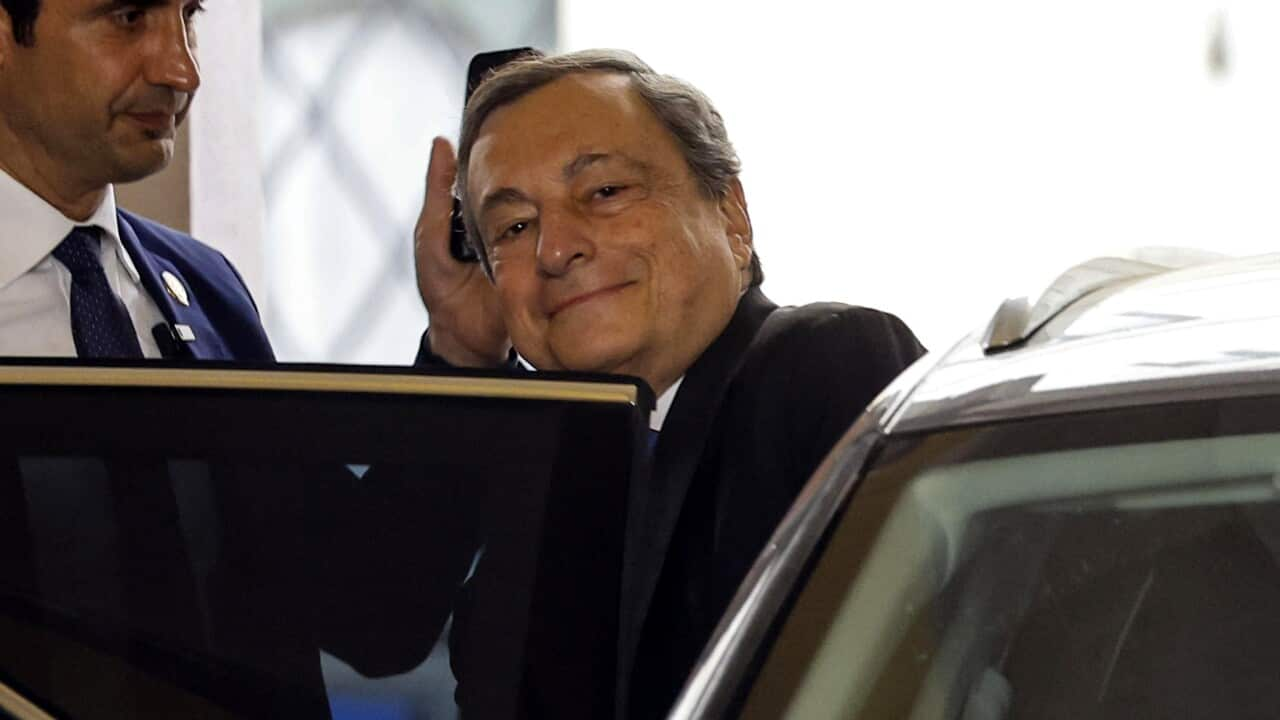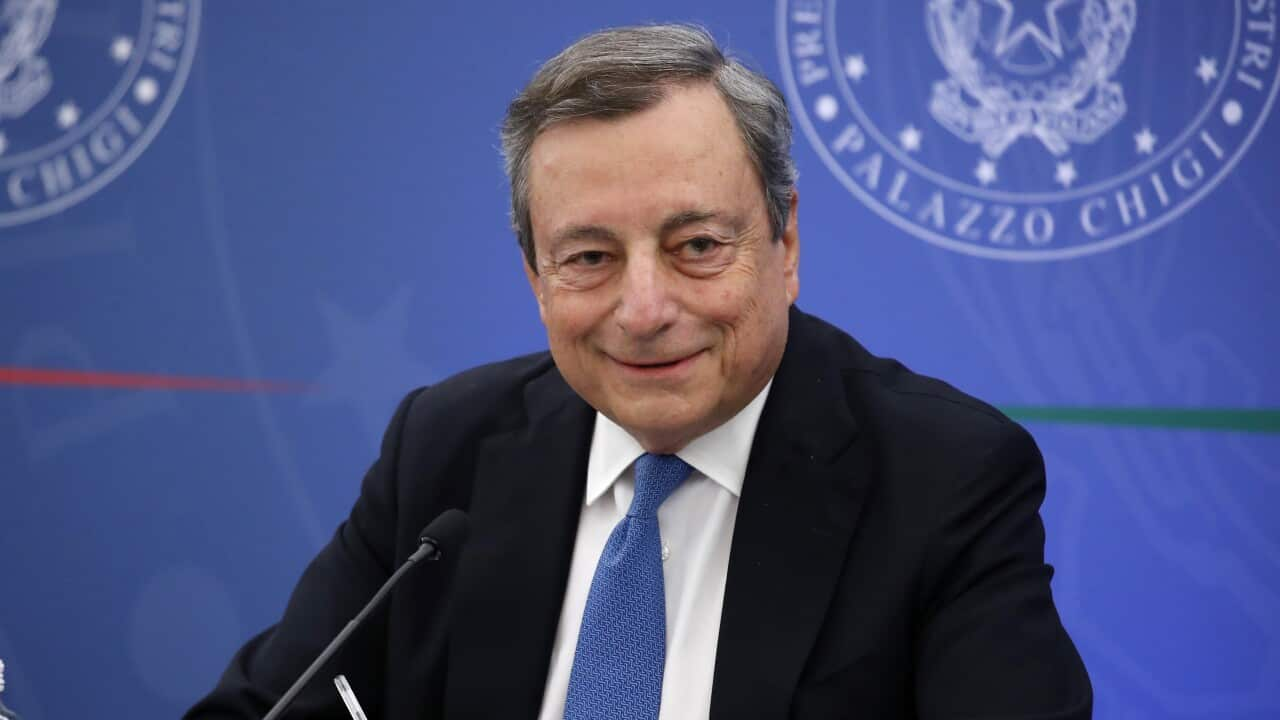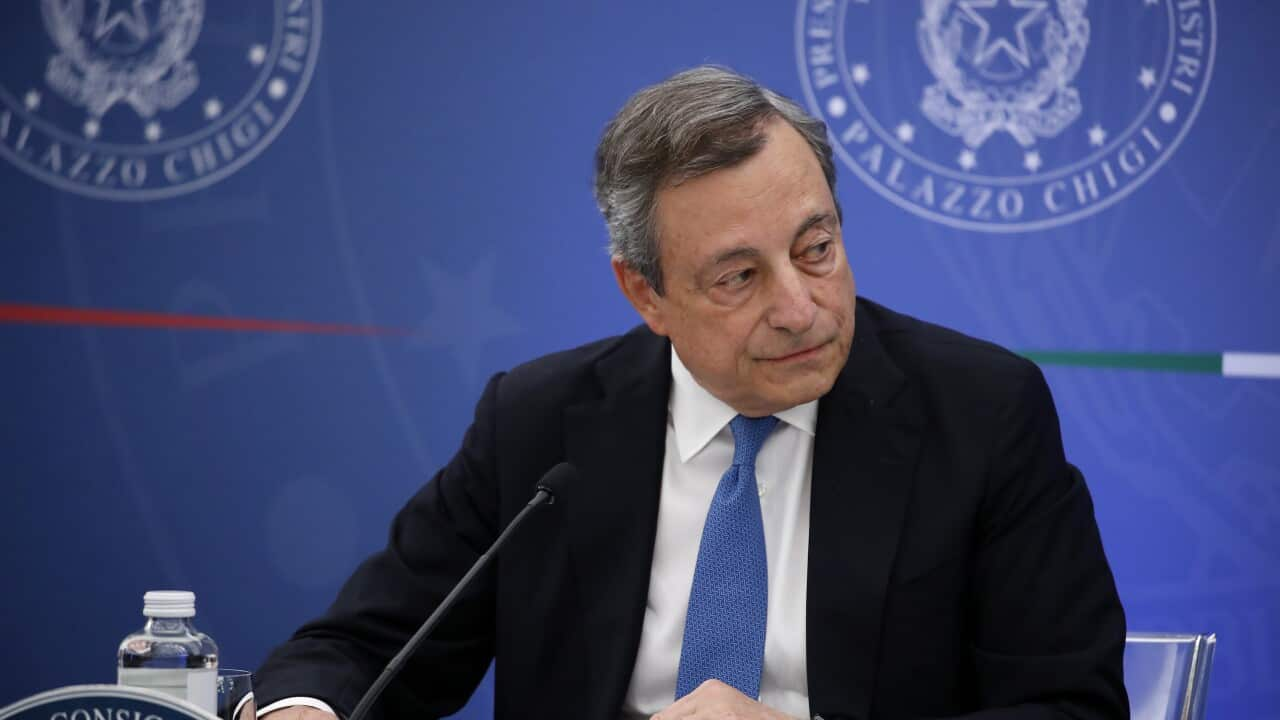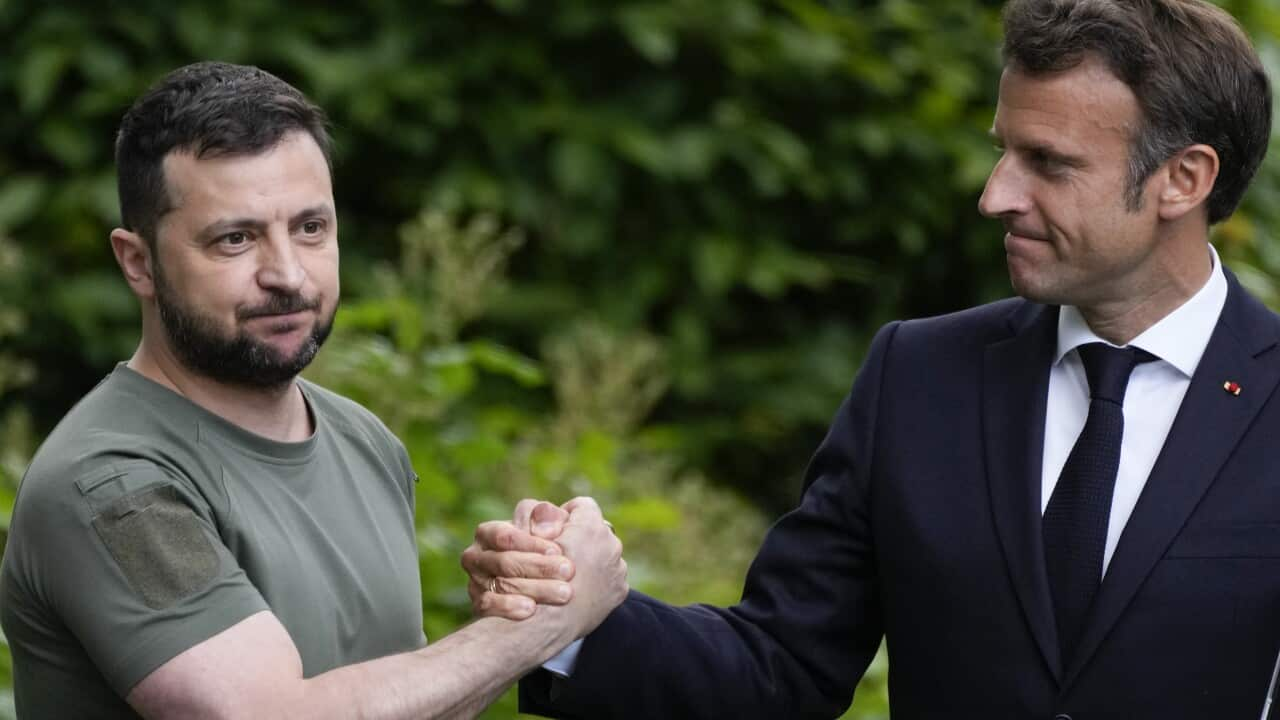Italian Prime Minister Mario Draghi handed in his resignation to President Sergio Mattarella on Thursday after his unity government fell apart, plunging the country into political turmoil and hitting financial markets.
Mr Mattarella's office said in a statement that the head of state had "taken note" of the resignation and asked Mr Draghi to remain in a caretaker capacity. The statement did not say what Mr Mattarella would do next.
Political sources said earlier this week that he would likely dissolve parliament and call early elections in October. Mr Mattarella plans to meet the speakers of both houses of parliament on Thursday afternoon.
How did this happen?
Italy's coalition crumbled on Wednesday when three of Mr Draghi's main partners snubbed a confidence vote he had called to try to end divisions and renew their fractious alliance.
The political crisis has up-ended months of stability in Italy, during which Mr Draghi, a respected former central banker, had helped shape Europe's tough response to Russia's invasion of Ukraine and had boosted the country's standing in financial markets.
Impact on markets
Italian bond and stocks sold off sharply on Thursday just as markets were bracing for the first interest rate hike from the European Central Bank since 2011.
In early trade, benchmark 10-year Italian bonds yields soared over 20 basis points to their highest in over three weeks and Italian stocks opened down 1.8 per cent.
"It is a big blow to Italy's ability to deliver policies and reforms over the near term," said Lorenzo Codogno, head of LC Macro Advisers and a former senior Italian Treasury official.
"There will be delays and disruptions with early elections, and most likely no budget by year-end."
Coalition fractures
Mr Draghi had already tendered his resignation last week after one of his partners, the populist 5-Star Movement, failed to back him in a confidence vote on measures tackling the high cost of living.
Mr Mattarella rejected the resignation and told him to go before parliament to see if he could keep the broad coalition going until the planned end of the legislature in early 2023.
In a speech to the Senate, Mr Draghi made a plea for unity and set out a series of issues facing Italy ranging from the war in Ukraine to social inequality and rising prices.
But the 5-Star once again decided not to back him, saying he had not addressed their core concerns.
In addition, the rightist Forza Italia and League parties decided to shun the vote, saying they wanted a commitment that Mr Draghi was willing to forge a new administration without 5-Star and with fresh policy priorities.
Polls say the conservative bloc, which includes the far-right Brothers of Italy party, would likely win a ballot.












